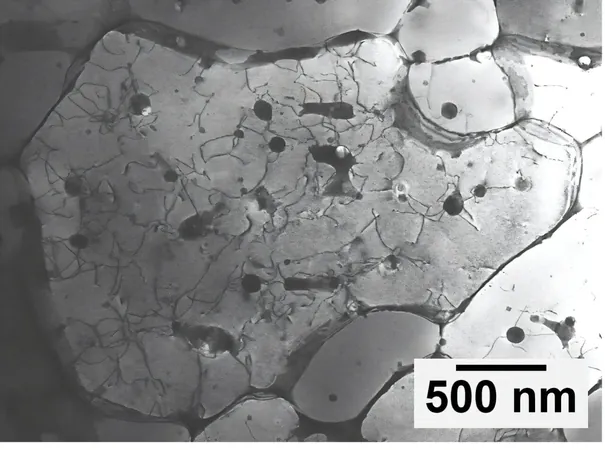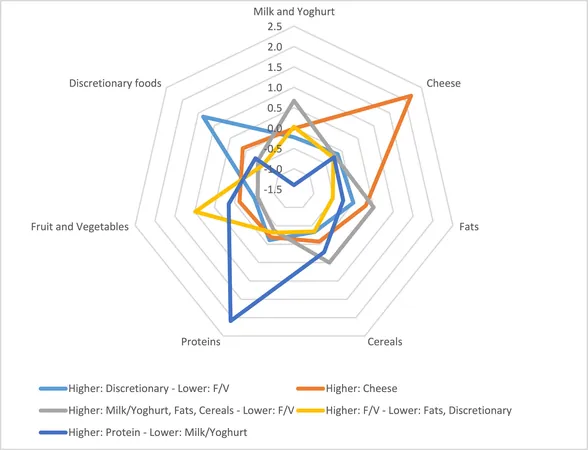
Surprising Findings: Hypoparathyroidism in Children After Thyroid Surgery May Not Last
2025-03-27
Author: Jia
A recent study out of China has revealed that hypoparathyroidism in children following thyroidectomy—a surgery commonly performed to remove the thyroid gland—can often be a temporary condition.
The research indicated that most children regain normal parathyroid function within six months post-surgery, a significant finding for families grappling with the implications of thyroid cancer in their young ones.
The study, published in the Ear, Nose & Throat Journal, explored the intricate relationship between recovery times and parathyroid hormone (PTH) levels measured the day after surgery.
Understanding these dynamics is crucial, especially since many children undergoing thyroidectomy are in critical growth and developmental stages.
The Impact of Hypoparathyroidism During Growth Years
Researchers emphasized the seriousness of hypoparathyroidism in young patients, remarking, "Children with thyroid cancer are in a period of growth and development, with a long survival time, and the influence of hypoparathyroidism is more serious and long-term."
The temporary nature of this condition, therefore, carries a weighty psychological and medical significance, making awareness and monitoring essential.
To reach these findings, the researchers at Beijing Children’s Hospital analyzed data from 121 children aged 3 to 15 who underwent total thyroidectomy between June 2016 and December 2020, with an average age of 10.3 years.
Of these patients, 34 children (28.1%) developed hypoparathyroidism post-surgery, highlighting the need for precise surgical techniques to protect the four small parathyroid glands that control crucial calcium and phosphorus levels in the body.
Recovery Rates Offer Hope
The results showed a promising trend: more than half of the children (52.9%) had their PTH levels return to normal within one month.
By the six-month mark, 73.5% had normal levels, and almost all (88.2%) within a year.
However, two patients experienced a slower recovery, with their PTH levels remaining low beyond one year.
Interestingly, these cases involved extensive cancer metastasis, underlining that the complexity of each individual patient’s situation can affect recovery.
Statistical analyses indicated that PTH levels of 1 picogram/mL or lower on the first day after surgery significantly impacted recovery outcomes.
This finding reinforces the importance of early monitoring; researchers noted that a PTH assay could serve as a reliable predictor for identifying children at risk for prolonged hypoparathyroidism.
The Bigger Picture: Implications for Ongoing Care
With these insights, the study encourages caution regarding permanent hypoparathyroidism diagnoses in children, which could lead to unnecessary lifelong medical care and heightened economic burdens on families.
"The diagnosis of permanent hypoparathyroidism implies lifelong medical care, increases the economic burden, and affects the quality of life of the child," the researchers stated.
As medical practices advance, understanding the recovery patterns from complications such as hypoparathyroidism can significantly impact the management of pediatric thyroid cancers.
This groundbreaking research not only sheds light on the temporary nature of this condition in young cancer patients but also opens the door for more tailored treatment strategies moving forward.


 Brasil (PT)
Brasil (PT)
 Canada (EN)
Canada (EN)
 Chile (ES)
Chile (ES)
 Česko (CS)
Česko (CS)
 대한민국 (KO)
대한민국 (KO)
 España (ES)
España (ES)
 France (FR)
France (FR)
 Hong Kong (EN)
Hong Kong (EN)
 Italia (IT)
Italia (IT)
 日本 (JA)
日本 (JA)
 Magyarország (HU)
Magyarország (HU)
 Norge (NO)
Norge (NO)
 Polska (PL)
Polska (PL)
 Schweiz (DE)
Schweiz (DE)
 Singapore (EN)
Singapore (EN)
 Sverige (SV)
Sverige (SV)
 Suomi (FI)
Suomi (FI)
 Türkiye (TR)
Türkiye (TR)
 الإمارات العربية المتحدة (AR)
الإمارات العربية المتحدة (AR)